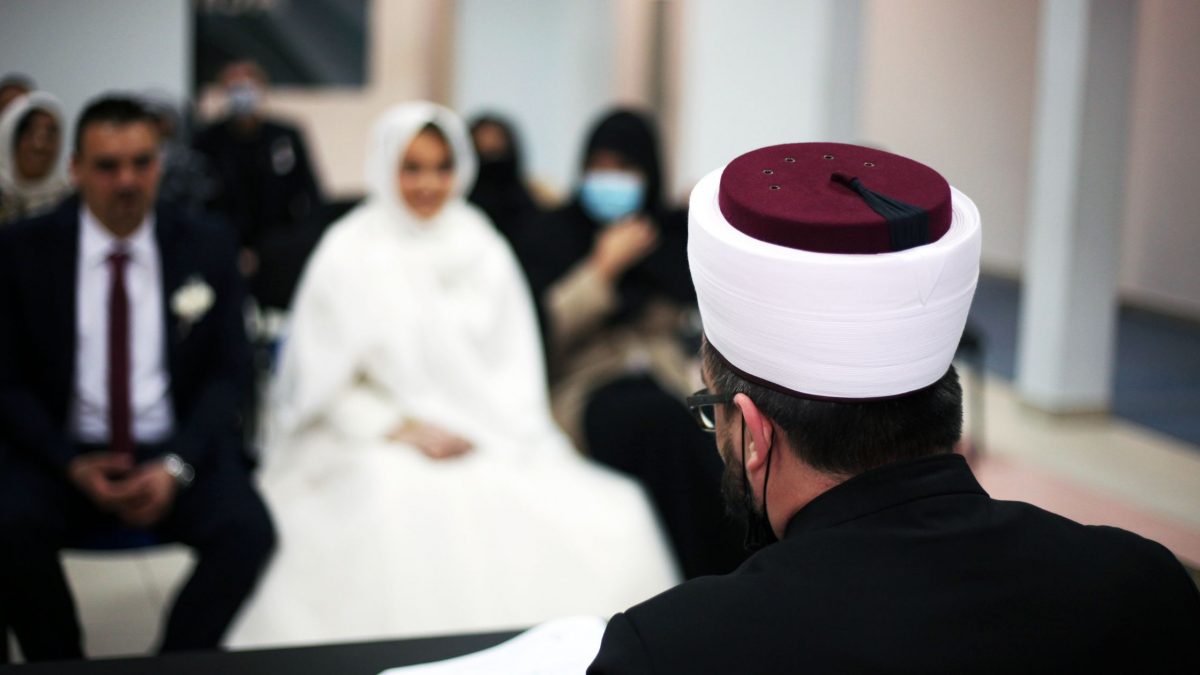Domestic Violence Against Women: How It Impacts Our Society

Muslim marriages are a mixture of cultural traditions and religious values. Muslim marriage customs, rituals, and the values of these traditions have changed over time. From the Nikah ceremony to the pre-wedding preparations, the wedding day, and the post-wedding celebrations, each part of the Muslim wedding reveals a unique side of a culture that binds communities together.
During the time of Prophet Muhammad (PBUH), marriages were simple and focused on the consent of both parties. The Prophet’s marriages set an example of equity which highlights the importance of respect, kindness, and understanding between spouses.
As Islam spread across diverse regions, it absorbed local cultural practices which completely changed the Muslim marriage traditions. The blending of Arab, Persian, Indian, and other cultural influences gave rise to a variety of rituals and ceremonies.
Significance of Nikah: The Nikah ceremony represents a sacred bond between a couple according to the teachings of the Quran. It is a commitment and a celebration of love by Islamic principles. This communal event emphasizes equality, mutual respect, and shared joy within the larger gathering as witnesses.
Marriage Contract: The formalization of the marriage contract during Nikah is a crucial aspect and should have transparency and fairness. It outlines the rights and responsibilities of spouses. The Mahr serves as a symbolic gift that promotes a partnership founded on faith, compassion, and shared goals.
Mehndi Ceremony: The Mehndi ceremony is a cultural festival where henna designs beautify the hands of brides. Mehndi is part of the pre-wedding celebrations which brings together family and friends in joyful anticipation.
Pre-Wedding Rituals: Before the Nikah, various rituals set the stage for the grand union. These rituals include ceremonies like Sanchak, where the groom’s family presents gifts to the bride’s family. These pre-wedding traditions not only build excitement but also strengthen familial bonds.
Read Also : Types of Marriages in Muslim
On the wedding day, the bride often wears a stunning wedding dress or “lehnga” and the groom wears a classic attire or ‘Sherwani”. Various ceremonial customs which include the exchange of gifts and rings make this occasion very special.
Rukhsati: The Rukhsati in Muslim weddings symbolizes the bride’s departure from her parental home to join her husband’s family. This ritual marks the transition from one phase of life to another. As the bride bids farewell, the ceremony involves blessings from her parents and elders, signifying their support for her new journey.
Wedding Feast or Walima: After the Nikah, the Walima feast marks the public announcement of the marriage, bringing together family and friends in a joyous celebration. This communal gathering is hosted by the groom’s family which signifies the completion of the marital contract. The Walima is a symbol of shared happiness, uniting the community to bless and support the newlyweds on their journey.
Gift-Giving Traditions: Gifts exchanged between the families symbolize blessings and support for the couple’s new life. This tradition highlights the nature of Muslim weddings, where the act of giving becomes a gesture of love, solidarity, and shared happiness.
Challenges: Muslim marriages encounter challenges as they pass through the complexities of a rapidly changing world. Evolving societal dynamics, shifting roles, and the rise of intercultural unions present both opportunities and hurdles for couples within the Muslim community.
Adaptability: Muslim marriages also find flexibility in the adaptability of Islamic teachings. Concepts of mutual respect, communication, and shared decision-making provide a base for couples to direct the complexities of modern times while staying true to the essence of their faith.
Read Also : Balancing Traditional Customs and Modernity in Emirati Marriage
Muslim marriages are like colorful artwork made of traditions that show the diverse cultures and beliefs in the community. While these customs change over time, important things like love, commitment, and celebration stay right at the heart of every marriage. As we move forward, it is the essence of these values that keeps the beauty of Muslim unions alive.
A: The Nikah ceremony holds immense importance as it formalizes the union between a husband and wife according to Islamic principles.
A: The Walima feast is a joyous celebration that symbolizes the public announcement of the marriage, where family and friends come together to share in the couple’s happiness.
A: Modern challenges and changing societal norms have influenced Muslim marriage traditions to make a balance between preserving cultural traditions and adapting to modern aspects of celebration.